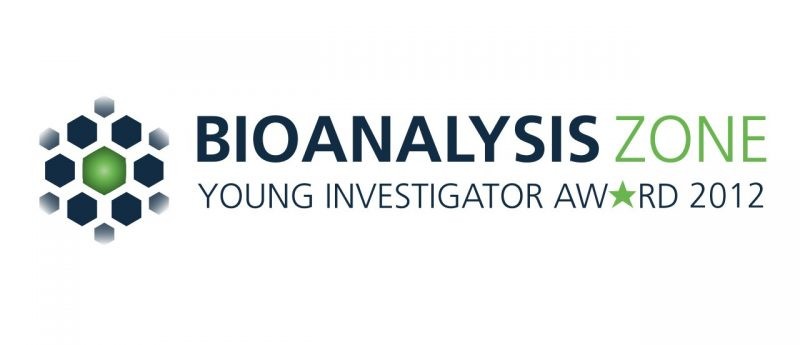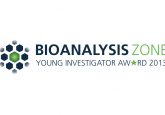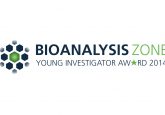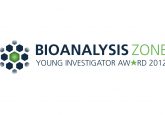2012 Young Investigator Award Winner: Maria Rambla-Alegre


Nominee:
Nominated By:
Supporting Comments:
Bioanalysis Zone asked Maria to highlight one of her favorite published articles and explain her reasoning.
Rambla-Alegre M, Martí-Centelles R, Esteve-Romero J, Carda-Broch S. Application of a liquid chromatographic procedure for the analysis of penicillin antibiotics in biological fluids and pharmaceutical formulations using sodium dodecyl sulphate/propanol mobile phases and direct injection. J. Chromatogr. A 1218(30), 4972–4981 (2011).
What were the most difficult challenges encountered in this study? And how were they overcome?
Recently, four penicillins (amoxicillin, ampicillin, cloxacillin and dicloxacillin) were monitored in urine and pharmaceutical formulations using hybrid micellar mobile phases. They are used to treat respiratory tract infections that often result from the encroachment of sensitive bacteria.
It should be taken into account that stability of penicillins greatly depends on pH. An interpretive optimization strategy based on the accurate description of the retention and shape of the chromatographic peaks was followed to select the most adequate stationary phase and the best concentration of surfactant and organic solvent.
Moreover, the optimization of sample preparation focused on the direct injection of the samples except for dilution, which makes this procedure less toxic and relatively inexpensive. MLC allows the analysis of complex matrices without the aid of extraction since micelles tend to bind proteins competitively, therefore releasing protein-bound drugs and proteins, thus cutting costs and analysis times.
Depending on the matrix, I followed different guidelines (ICH, US FDA and EU regulations) for validation purposes. It is necessary to accurately validate methods in bioanalysis to guarantee the correct assessment in the conclusions.
Which areas of your research did you find the most interesting/enjoyable and why? By comparison, which were the least agreeable?
Bioanalysis contributes to build a better society in controlling several forbidden substances in pharmaceuticals, biological fluids and adulterated food, and I would like to take part in this.
In my opinion, physiological fluids and food sample analysis are most interesting matrices in comparison by pharmaceuticals because of their complexity. First, antibiotics monitoring is very important because of the necessity to verify dosage compliance and, in some cases, because of the response in patients is similar due to subtherapeutic and toxic concentrations.
On the other hand, the aim of food-control programs is law enforcement drug residues, antibiotics in my case, in products of animal origin, and they strongly depend on the availability of rapid, precise methods for analytical determination. The EU introduced legislation on the authorization of veterinary medicines and has established maximum residual levels (MRLs) for these drugs in different tissues of animal origin for human consumption. Thus, in my opinion, there is a continuing need to develop new reliable analytical methods for determining compliance with national and international regulations in all quality and food safety areas.
Colleague quotes
Here is what some of Maria’s friends and colleagues had to say about her.
Josep Esteve-Romero, University of Jaume I, Spain
“Maria has always adopted a positive, critical view and shows eagerness to better herself. She has excellent people and communication skills and is highly motivated in her pursuit of an advanced degree in analytical chemistry and bioanalysis. She has a good theoretical background and is capable of using it creatively in her work. Moreover, she gets along well with her colleagues and has all the necessary qualities required for successful teamwork. Outside the field of her bioanalytical studies, she likes learning languages, do sports, reading books and travelling.”
Jose V. Gimeno-Adelantado, University of València, Spain
“Maria is a bright, creative, dynamic and highly motivated young bioanalytical chemist. She shows insight and experimental skills and she is an enthusiastic worker. To workload efficiently she likes to prioritize and organize the most important daily tasks. Thus, when she begins new scientific work, first she carries out an extensive bibliographical review and then organizes the papers into several categories and reads them carefully. Afterwards, she plans new and original experimental work. If any trouble arise in this step, she always looks for a way to solve them. She usually tries to find the origin of the problem and develop creative and practical solutions if applicable. She does not avoid responsibility at all, and is always ready to learn.”
Devasish Bose, Dr Harisingh Gour University, India
“I have personally known Maria for the last 10 years and strongly believe that she is able to achieve all the goals she is determined to, since hard work, perseverance, patient and ability to work under pressure are her most important skills. And these are really important in today’s research world. During the time I have known her, I have frequently been impressed by her exceptional capabilities to quickly learn new skills to develop and validate new LC procedures, as well as by her constant initiative to bring together innovative analytical methods.”



